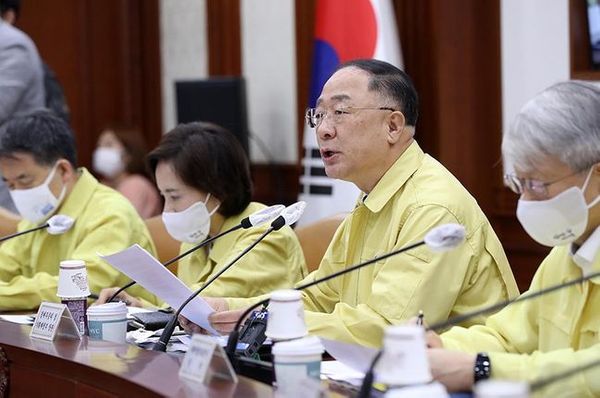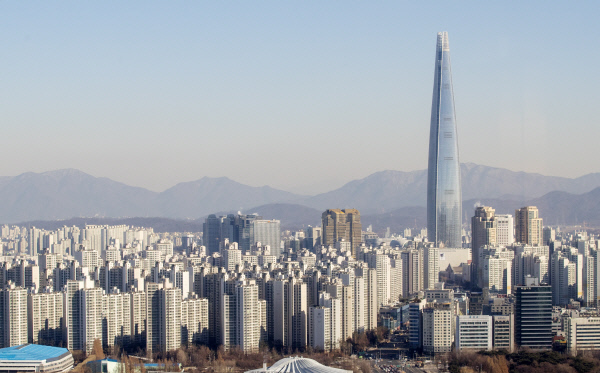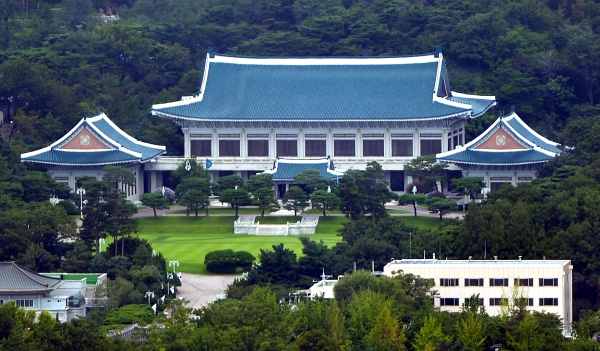Controversy over the real estate policies continues. The September issue of CAH dealt with new housing lease legislation and looked at the trends of the rental market. But before the housing lease problems, what had been pointed out as a fundamental reason of the real estate problem in Korea was multiple home ownership. Because it causes a shortage of homes and leads to a rise in housing prices. Real estate speculation of multiple homeowners was also a serious problem. In response, the government has begun to strongly regulate multiple homeowners through its 22nd real estate measure, which is still a big political issue. Multiple homeowners and opposition lawmakers are criticizing the government’s strong regulations. The government, however, is maintaining its strong regulation policy stance, setting ‘a single homeowner’ as a new standard of the reorganization of blue house staff. Why is the government keeping the regulations?
Strong Package of Regulations: 22nd Set of Real Estate Cooling Measures
On July 10th, the government implemented strong regulations about multiple homeowners that impose heavier taxes on them than other measures in the past. Hong Nam-ki, Deputy Prime Minister and Minister of Economy and Finance of Korea gave details about the policy at a briefing that day. First, comprehensive real estate tax was raised. Comprehensive real estate tax refers to a tax that is levied on persons possessing a high amount of real estate property. The government has doubled the tax rate for second-home owners in ‘area subject to adjustment,’ or those who have more than three apartments from 0.6~3.2% to 1.2~6%. The ‘area subject to adjustment’ refers to an area in which the rate of increase in housing prices is more than twice than that of inflation, or new apartment subscription rate is 5 to 1 or more. If a person’s market price of combined real estate properties is 5 billion won, his or her comprehensive real estate tax will be raised from 42 million won to 150 million won through the new tax rate. About this huge increase, Hong said that the government had no choice but to raise the tax on multiple homeowners because the social costs of their profiteering have been huge.
Second, the capital gains tax was raised. The capital gains tax is levied when a person profits by selling, or reselling, apartments. According to the current Income Tax Act, there is a heavy tax for persons whose apartments are located in ‘area subject to adjustment.’ For second-home owners, the heavy tax rate is raised from 10% to 20%. For people who have more than three apartments, it is raised from 20% to 30%. The capital gains tax for short-term transactions was also raised. For a multiple homeowner who sells an apartment within a year, the tax rate is raised from 40% to 70%. If the same person sells it within two years, the tax is raised from 60% to 60%. Hong said that the government will prevent people who have multiple housing units or people who own apartments for short periods from making profits through real estate speculation. But the implementation of the new capital gains tax is to be delayed until June 1st next year. This is to encourage multiple homeowners to sell their properties within that period. Finally, the acquisition tax was raised. Previously, the acquisition taxes for people who have less than four apartments and those who registered as rental housing companies were 1~3%. The same tax for people who have more than four apartments was 4%. However, the new acquisition tax was greatly raised, imposing 8% to second-home owners and 12% to rental housing companies and those who have more than four apartments.

The Effects is Slowing Being Revealed
According to the roughly tightened 22nd measures, multiple homeowners’ tax burden increased a lot. The government expected the 22nd measures to encourage current multiple homeowners to sell their apartments and cut off potential speculation. A lot of real estate experts also said that the housing prices may be stabilized as many multiple homeowners, who were burdened by the higher taxes, put their apartments on the market. Park Won-gap, head of KB Kookmin Bank’s real estate business department, said that multiple homeowners will be deeply concerned about whether to sell their homes or not as the taxes increase. Ham Young-jin, head of the big data lab at real estate application ‘Zigbang’, commented that people are expected to put their homes on sale before June 1st next year, especially multiple homeowners who have huge capital gains. Many people voiced concern over the still-high housing prices in Seoul, even after the announcement of the measure. In August, however, the rise in housing prices in Gangnam districts showed a sharp decline, which drew attention. According to the Korea Appraisal Board (KAB), as of August 10th, the rise in housing prices in Gangnam-gu was only 0.01% higher than last week, and those in Seocho-gu and Songpa-gu remained unchanged. Concerning this, an official at the KAB explained that increased tax burden reduced the demand for multiple homes. In fact, in an interview with the Hankook Ilbo, a licensed real estate agent in Daechi-dong, Gangnam-gu said that most of the calls are from the multiple homeowners asking how to respond to the changed tax system while inquiry on housing transactions is few recently.

Voices of Criticism
There were also critics against the government’s 22nd measures. First, many people are concerned that a strong tax policy cannot be a long-term solution, rather causing the refusal to pay taxes. Cho Joo-hyun, a professor of real estate studies at Konkuk University said that tax policies should be made temporarily to give a shock when the market is irrational and keeping the tax policy for a long-term can result in the public not trusting the policy. Second, the 22nd measures can rather damage people who don’t have their own houses. It is because multiple homeowners’ supply for rental homes can decrease as multiple home ownership is restricted. This is inconsistent with the measures’ purpose of protecting those homeless class. Under these circumstances, the rental markets may become more unstable as the new housing lease legislation is enacted. For more information about the new housing lease legislation, please check CAH’s September issue. (https://bit.ly/3hYVq1P) Third, it was pointed out that the 22nd measures can put a heavy burden on people who have several or high-price homes but no income such as retirees. Shim Gyo-eon, a professor of real estate studies at Konkuk University, said that concentration of wealth can continue if some solvent people buy back the homes put by retirees who could not cope with the increased tax. In addition, the measures have a limit that multiple homeowners can bypass the capital gains tax by donating their homes to their immediate families. It is because the gift tax, where the highest rate is 50%, is less burdensome than the capital gains tax where the highest rate is 62%.
New Standard of Personnel Affairs: A Single Homeowner
Controversy over Senior Officials’ Multiple Home Ownership
Along with the government’s successive announcement of the high-intensity policies, there were moves that disclosed senior officials’ multiple home ownership. Disclosing the multiple homeowners in the Democratic Party (DP), the Citizens’ Coalition for Economic Justice (CCEJ) urged them to sell their properties in July. In January this year, 253 candidates for the general election in the DP, who own more than two properties in restricted areas, had signed a pledge to sell all properties except for one. But according to the CCEJ’s announcement in July, only 5 of 39 candidates with multiple homes had actually sold their properties. The United Future Party (UFP), which has continually criticized the government’s real estate measures, also could not avoid the CCEJ’s report. According to the CCEJ, 41of 103 (40%) lawmakers in the UFP were multiple homeowners. Also, the UFP lawmakers’ average price of real estate properties was 2.08 billion won per person, which was seven times higher than the average 300 million won per household in Korea. The CCEJ criticized that housing policies for the public cannot be pursued in this situation where senior officials who make real estate policies continue to earn profits through real estate.
Reorganization of Blue House Staff
Before the controversy over real estate measures was introduced this year, there was advice for the disposal of properties to staff in the Blue House. Presidential Chief of Staff Noh Young-min urged staff to sell all properties except for one as soon as possible in December 2019. However, Noh faced public criticism for his decision to keep his home in Banpo-dong, Seoul and sell the second home in Cheongju. It was because the decision was contradictory to the government’s policy to prevent real estate speculation, especially in Seoul. Along with the continued criticism over the government’s strong real estate measures, the six presidential aides, including Noh, finally offered to resign. As a result, a reshuffle of the presidential aides based on public opinion begun. The Blue House reflected a new personnel standard of ‘single homeowner or not’ in its third reshuffle. In response, 9 aides, designated in Aug 14th, were all single homeowners. Noh’s offer to resign was also turned down as he sold both properties. The Blue House announced that single home ownership is a ‘new normal’ of its personnel. Kang Min-seok, the Blue House spokesman, said that the government considered the public’s perception that senior officials should take the lead so that the justice of residence is realized. It is expected that this new personnel standard may also affect many other nominations of officials. In fact, Gyeonggi Province Governor Lee Jae-myung urged civil servants of Grade IV or higher in the Gyeonggi Provincial Government to sell all properties except for one on July 28th. Along with the announcement, Lee said that he will realize the Moon Jae-in administration’s policy ideology.

5. Why is the Regulation of Multiple Home Ownership Needed?
Although there were many critics, there may be no disagreement on the point that asset inequality should be resolved by cutting off multiple homeowners’ speculation. Asset inequality by speculation is a chronic problem in Korea. According to Lee Tae-kyung, vice president of the Institute of Land and Liberty, Korea’s unearned income from real estate is about 374.6 trillion won per year, or 22.9% of GDP. Multiple homeowners become wealthier through investment and speculation and the housing prices also increase in the process. This makes it increasingly difficult for homeless class to get a home. According to Statistics Korea research, the average assets of the top 20% of households are 946.63 million won, which are 7.2 times higher than that of the lowest 20% of households with 113.46 million won. Some people claimed that raising the comprehensive real estate tax is discrimination against multiple homeowners. However, Lee Joon-Koo, a professor emeritus of Economics at Seoul National University, said that only few pay the comprehensive real estate tax in Korea and it is not a bad tax that burdens the few rich.
It can be said that the regulation about multiple home ownership was a warning message to those who view real estate as a means to profit, not as a place to live. As they easily buy and sell properties, the speculative housing bubble has been deepened in Korea, especially Seoul. Even many senior officials who make housing policies were also multiple homeowners. As many people have criticized, strong tax policies will not be the only answer. However, the wrong perception of real estate by many people, including multiple homeowners, should be changed.

